Press mulls aftermath of Turkey-Armenia deal
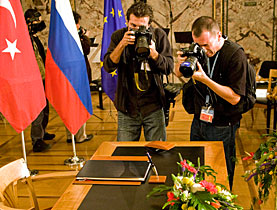
There was both praise and concern in the Swiss media on Monday over the accord signed in Zurich at the weekend on normalising relations between Turkey and Armenia.
The Swiss-brokered deal, which follows a century of hostility between the two countries, was signed late on Saturday evening, after last-minute problems delayed the ceremony.
Attending was Swiss Foreign Minister Micheline Calmy-Rey and US Secretary of State Hillary Rodham Clinton. The delay came after the Armenians objected to statements the Turks planned to read after signing. No statements from either side were subsequently issued.
Under the agreement, Turkey and Armenia are to establish diplomatic ties and reopen their shared border. It also calls for a sub-commission to investigate the troubled history between the two countries. Up to 1.5 million Armenians were killed by Turks in the last days of the Ottoman empire. Turkey has always denied it was genocide.
Turkey’s neighbour Azerbaijan has already criticised the deal, saying Turkey should not have normalised ties without resolving the issue of the disputed enclave of Nagorno-Karabakh, which is part of Azerbaijan but occupied by Armenia.
During the war there in 1993, Turkey closed its border with Armenia out of solidarity with Azerbaijan. Turkey responded on Sunday by saying that Armenia must withdraw from the enclave.
“Long and stony”
The route to Saturday’s agreement was “long and stony,” said Calmy-Rey in an interview published in the tabloid Blick on Monday. But she described the deal as a milestone towards normalising relations and said that she was happy that Swiss diplomacy had made a contribution.
Asked whether recent events – such as the arrest of director Roman Polanski in Zurich and the failure to secure the release of hostages in Libya – had shaken Switzerland’s reputation abroad, she responded that Saturday’s deal was not about the Swiss image but about the people in the region.
“But our mediation has also shown that Switzerland is not isolated internationally, but, on the contrary has a very good network,” she said, listing the number of dignitaries that had attended the Zurich ceremony, including the Russian and French foreign ministers and the European Union’s Javier Solana.
On Monday, Switzerland indicated at a media conference that it was ready to mediate further between Turkey and Armenia, according to the Swiss news agency.
Thomas Greminger, head of the human security and political affairs division at the foreign ministry, was quoted as saying that support could, for example, be given to the commission investigating the Armenian killings.
Triumphs
As the accord came late on Saturday, many editorials only appeared on Monday. For the Zurich-based NZZ newspaper, the deal was positive.
“The signing of the Turkish-Armenian protocol in Zurich is the most important and visible success for Switzerland as a broker since the Algerian accord in Evian of 1962,” said an editorial, referring to the pact between France and Algeria to end the Algerian war.
There were three triumphs for Switzerland: its tight relations with the countries involved, the fact that it was accepted as a suitable mediator and its solution, which allows the countries to move a step forward to normalising relations, it added.
However the Fribourg-based La Liberté was less convinced that it has been a win-win situation and likened the deal to a birth using a forceps. The hesitation of the two sides had shown that there was still much mistrust, it added.
It said that the Zurich deal was reminiscent of the failed Oslo accords between the Israelis and the Palestinians which had shown that a framework needed political will to follow it up.
But the writer pointed out that the Armenians and Turks had at least been living side by side peacefully for some time. The Nagorno-Karabakh issue was still a thorny issue, as was shown by the latest Azerbaijan and Turkish statements. “A first cold shower for an agreement where the ink has hardly dried,” found the editorial.
A game of two nations
On Monday, Armenian President Serzh Sarksyan said he would make a landmark trip to Turkey to attend a football match between the his country and Turkey on Wednesday.
Football formed part of the German-speaking Tages-Anzeiger’s commentary. Written before Sarksyan’s announcement was made, it said that an appearance by the Armenian president would be the next step in the historic rapprochement between the two sides.
The genocide issue was at the heart of an emotional debate. At some point, Turkey would have to face up to its past, it said, but added that the Armenians should celebrate the improvement in relations even if they had not yet received what they wanted from Turkey – namely recognition that the killings were genocide.
Will Wednesday’s game be one of two losers? wondered the newspaper. “It’s in the hands of the politicians to make the game one of two winners,” it said.
swissinfo.ch and agencies
The first protocol sets out the principle of restoring diplomatic relations. It enshrines territorial integrity and the recognition of existing borders.
The second protocol deals with economic, technological, cultural and historic relationships between the two countries. It establishes a committee of experts to investigate the deaths of 1.5 million Armenians in 1915.
The status of Nagorno-Karabakh has been disputed since 1918, when Armenia and Azerbaijan became independent from the Russian empire.
Soviet rule was imposed in the south Caucasus in 1921, and predominantly Armenian-populated Nagorno-Karabakh became an autonomous region within the Azeri Soviet republic.
In 1988, the Nagorno-Karabakh authorities demanded to be transferred to the Armenian republic. The Soviet Union collapsed in 1991 and Nagorno-Karabakh, in a referendum boycotted by most of the local Azeri population, declared independence.
Sporadic fighting between Armenians and Azerbaijanis erupted in war in 1991. Ethnic Armenian forces, backed by Armenia, drove back Azerbaijani forces and took control of Nagorno-Karabakh and districts surrounding it.
A ceasefire was signed in 1994, but there are frequent violations. The front line is monitored by a single representative of the Organisation for Security and Cooperation in Europe and five field assistants.
Turkey and Armenia are pursuing rapprochement after almost a century of animosity stemming from the First World War mass killings of Armenians by Ottoman Turks.
The neighbours have agreed accords on bilateral relations and opening their border, which Ankara closed in 1993 in solidarity with ally Azerbaijan.
Turkey had previously ruled out opening the border until Armenia made concessions on the territory.

In compliance with the JTI standards
More: SWI swissinfo.ch certified by the Journalism Trust Initiative
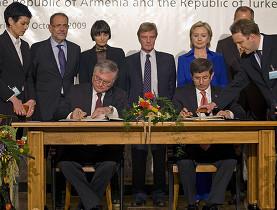
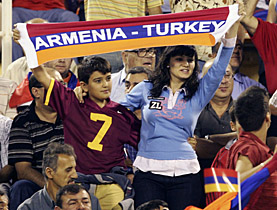
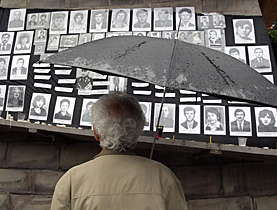
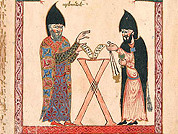
You can find an overview of ongoing debates with our journalists here. Please join us!
If you want to start a conversation about a topic raised in this article or want to report factual errors, email us at english@swissinfo.ch.